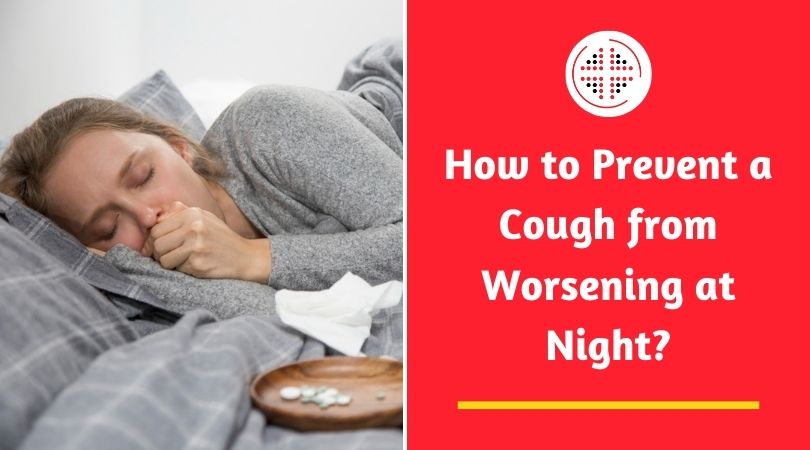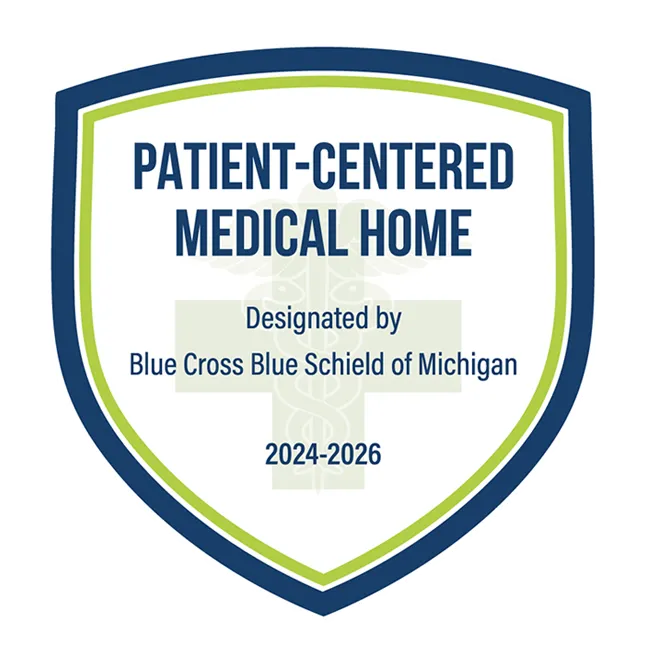


If you have a cough, it may be causing disturbances in your sleep, which prompts one simple question, “Why does my cough get worse at night?” There are many reasons behind this experience. One primary reason is that infections, like the flu or a cold, release massive amounts of mucus at night. However, other aspects account for the constant coughing at night.
This blog will address the root cause of nocturnal cough and provide tips to prevent it.
One possible reason behind nocturnal cough is that moving around during the daytime helps in loosening trapped mucus. But, when you lie down, mucus starts pooling in the back of your throat, causing you to cough at night.
Another reason for constant coughing at night is acid reflux. Acid irritates the throat, just like mucus, germs, or allergies. People with this condition may experience terrible nocturnal cough because lying down forces acid to travel up the esophagus, activating the cough.
There are several additional, possible causes behind a nocturnal cough. Here are some of the considered causes.
Also known as a Post Nasal drip, upper airway cough syndrome is one of the common causes of coughing at night. It occurs due to mucus dripping down your throat, which tickles the nerves, triggering coughing fits. Eye irritation, sneezing, and blockage may also be due to upper airway cough syndrome.
People with respiratory disorders, such as asthma, have swollen airways, which can cause difficulty in breathing, possibility of hyperventilating, and coughing at night. Besides chest tightness, shortness of breath might accompany respiratory disorders.
Doctors most likely order spirometry, a lung function test to check for respiratory disorders. In addition to the doctor’s direction, there are two types of medications available: quick-relief drugs, which provide symptom relief, and prescribed drugs you take daily to keep asthma under control.
Gastroesophageal reflux happens when acid from your stomach flows back into your esophagus. If you only cough at night, acid reflux could be the reason, since stomach acid can start to sneak up when you sleep. The sign of a nocturnal cough is characterized by starting when you lie in bed at night. Other symptoms can include-
Diagnostic tests may include an x-ray of the upper GI tract or an endoscopy. Gastroesophageal reflux is treated with medication, lifestyle changes, or surgical procedures. In addition to these solutions, consider eating the day's final meal three to four hours before bed to avoid constant coughing at night.
Pneumonia causes inflammation in the lungs. Pneumonia can also cause-
Usually, pneumonia is detected by listening to your chest with a stethoscope. However, doctors might order an x-ray and blood tests to determine if it's viral or bacterial. Antibiotics are the best treatment for bacterial pneumonia. If it's viral, the only remedy is getting proper rest and taking over-the-counter cough medicine prescribed by the doctor.
Whooping cough is a bacterial infection in the respiratory system. Coughing is the main symptom, which can become fierce at night. The symptoms include-
After a week, coughing starts with intensity. Whooping cough is very contagious, but there is a vaccine to prevent the spread. Whooping cough is diagnosed with blood tests or by taking a mucus sample. Doctors can also treat this condition with antibiotics.
If you are already dealing with constant coughing at night, it is important to prevent it from worsening at night. Here’s a list of things you should avoid when you have a cough-
If you have a temporary cough due to sickness, it’s important to remember that your body will need more rest than normal to fight off the infection. Try to go to bed early to get the necessary sleep. Adjusting your schedule to attempt sleeping simply an hour before your normal timeframe could make a difference.
Being in smoky environments makes breathing difficult and certainly won't help if you already have a cough. These environments could worsen your cough and leave you coughing even more at night.
Avoid sleeping in a cold bedroom if you have a nocturnal cough. An allergic cough can alter your body temperature, negatively affecting your sleep quality. Add an extra blanket while sleeping, or alter the temperature to a relaxed level.
If you regularly take medication for asthma or any respiratory disorder, you should continue to take them routinely. It’s particularly important to ensure you do not miss doses if you’re suffering from an intense cough, as your airways will be more inflamed, and your body will produce more mucus.
Constant coughing at night can happen due to a disease of the upper airway, lower airway, gastrointestinal system, or cardiovascular system. The following complications are often associated with constant coughing at night-
Adults with nocturnal cough longer than eight weeks often experience this phenomenon due to upper airway cough syndrome, asthma, eosinophilic bronchitis, or gastroesophageal reflux.
The following tips include methods that can ease coughing at night-
If you have any of the following symptoms, it is the right time to see your doctor-
For more information, contact MI Express Urgent Care.
There are several underlying factors behind nocturnal cough- treatments for this concern are determined by keeping the specific cause of the condition in mind. However, connecting with your doctor before the condition worsens always proves beneficial.
MI Express Urgent Care provides complete medical assistance for nocturnal cough. Our doctors perform a complete diagnosis and begin treatment immediately. Reach out to us for relief today.




